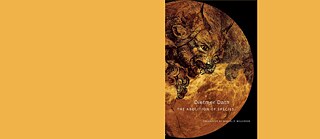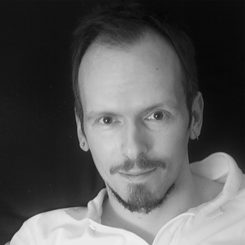|
6:00 PM
POSTPONED: EUROPEAN BOOK CLUB
Book Discussion|Dietmar Dath: Abolition of Species
-
Goethe-Institut Chicago, Chicago, IL
- Language English
- Price Free Admission

Due to illness, we have to postpone the book club (no book club oN 03/21)
The discussion in English will be moderated by Patrick Fortmann, Professor of Germanic Studies at UIC.
The European Book Club (organized by the Goethe-Institut Chicago and EUNIC Chicago) meets regularly for a book discussion of a bestselling novel in English translation. Guests who would like to attend, should read the book in advance and come prepared to participate in the discussion.
The era of boredom is over, there are almost no more people and the biological species have been abolished. Dietmar Dath's novel takes place 500 years in the future, after liberation, in a world in which speaking and intelligent animals, the gente, have managed the transition of evolution from natural history to shaped history.
Capable of constant transformation, they themselves determine in which animal form they appear and with whom they engage in sexual intercourse. Communication works telepathically via pheromones and via forums that communicate the latest news and discussions. In the three labyrinthine cities of Landers, Kapseits and Borbruck, the few people still alive are subjects of the new civilization.
Dietmar Dath, born in 1970, is an author and translator. He was editor-in-chief of Spex magazine and feature editor of the Frankfurter Allgemeine Zeitung, where he has been a film critic since September 2011. Dath has published fifteen novels as well as books and essays on scientific, aesthetic and political topics, including the controversial "Maschinenwinter" (2008) and the "BasisBiographie Rosa Luxemburg" (2010). Recently, Dietmar Dath has also worked as playwright and poet. He lives in Freiburg and Frankfurt am Main.
Patrick Fortmann earned his Ph.D. from Harvard and he is Associate Professor of Germanic Studies at the University of Illinois at Chicago.
He works in the long nineteenth century and is particularly interested in questions of sovereignty, emotion, and the nation.
Location
Goethe-Institut Chicago
150 N Michigan Ave
Suite 420
Chicago, IL 60601
USA
150 N Michigan Ave
Suite 420
Chicago, IL 60601
USA
